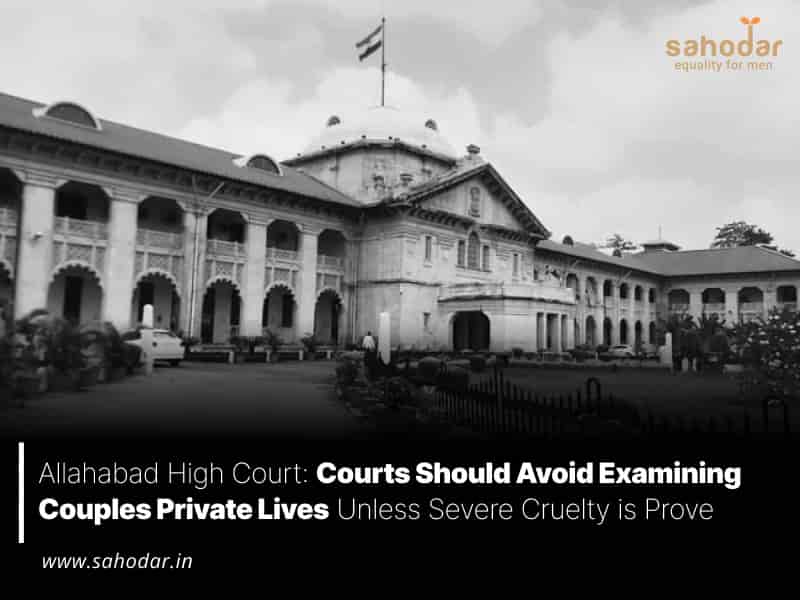The Court was dealing with an appeal moved by a woman against grant of divorce in the case initiated by her husband.
The Allahabad High Court recently emphasized that the way a married couple behaves in the couples private relationship is beyond the court’s jurisdiction. A Division Bench, comprising Justice Saumitra Dayal Singh and Justice Donadi Ramesh, made this observation while hearing an appeal filed by a woman challenging a divorce granted to her husband. The Bench highlighted that differences in intimate preferences between spouses should ideally be resolved by the couple themselves, without any court intervention.
“What personal likes, preferences and habits, acts a party to a marriage may feel inclined to practise and indulge in and desire their partner to participate in, within the confines of that relationship that too involving intimate moments is not for the Court to explore or examine unless they involve acts of ex facie extreme cruelty and/ or depravity,” the Court said.
The court made these remarks regarding the husband’s claim of alleged cruelty as grounds for divorce.
The couple married in 1999, and the husband filed for divorce just 11 months later. A family court ultimately ruled in his favor in 2015.
Challenging the divorce, the wife’s counsel argued that the husband’s petition for dissolution of the marriage was inadmissible, as it had been filed within a year of marriage.
The High Court concurred, stating that filing for divorce within one year of marriage is not allowed under the Hindu Marriage Act.
“In fact on a wholesome reading of the provision it reveals that cause of action to dissolve a Hindu marriage may not arise to a party thereto, within the first year of marriage, except in cases involving ‘extreme hardship’ or ‘extreme depravity’ suffered by the petitioner. Barring those two contingencies, no other exist.”
The court added that, even in such cases, a specific application must be submitted to seek permission for filing a divorce petition within the first year of marriage.
Additionally, the court emphasized that the decision rendered after one year does not override the initial legal restriction.
“If that petition could not be filed, because no cause of action arose, the petition may not become competent by passage of time as cause of action may only be seen to arise with reference to the date of presentation of a petition, and not later,” it reasoned.
The Bench observed that the trial court should have addressed this issue, as the family court did not provide any findings on the wife’s objection.
Regarding cruelty, the High Court noted that the family court had referenced the wife’s actions during the legal process, highlighting that she had filed 3-4 cases against the husband.
“That was not the cruelty alleged by the respondent. It was extraneous to the dispute,” it said, adding how the wife fought to resist divorce can never be construed as cruel behaviour.
The Court concluded that there were no valid grounds for granting the divorce, noting that the wife had been unnecessarily subjected to litigation.
Consequently, it allowed the appeal, overturning the family court’s decision, and imposed a cost of ₹50,000 on the husband.
“We are informed that the respondent had deposited Rs. 2,50,000/- before the learned Court below in compliance to the impugned judgment and order. Let costs awarded be paid therefrom. The balance amount together with accrued interest be refunded to the respondent, after ensuring that all recoveries outstanding against the respondent towards maintenance amount awarded to the appellant are satisfied,” it ordered.

